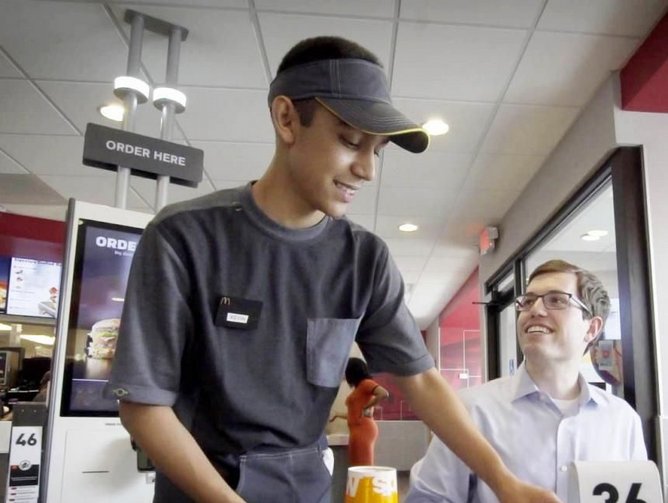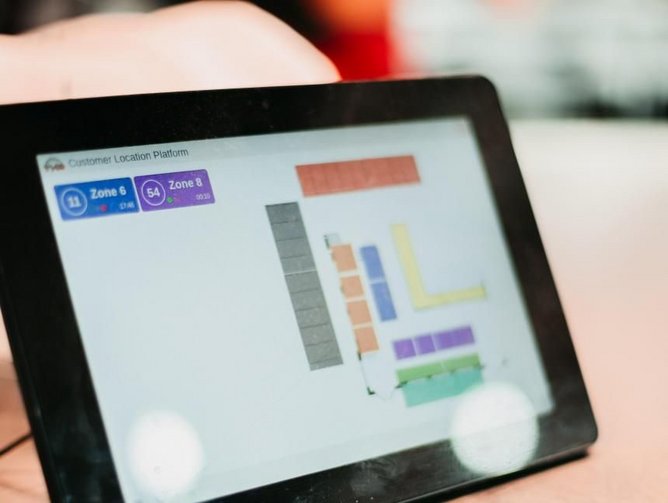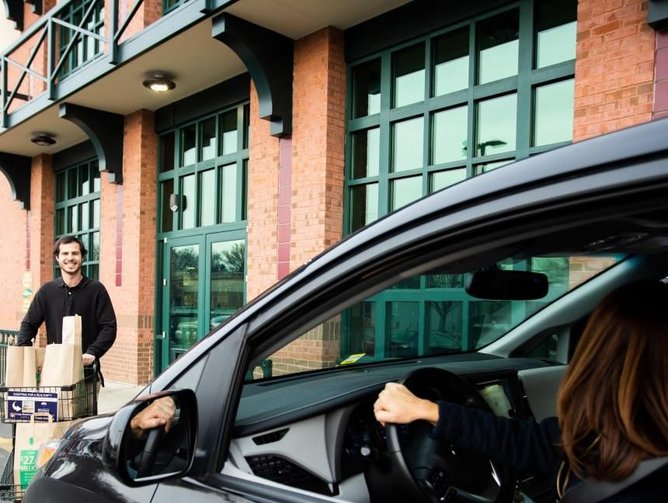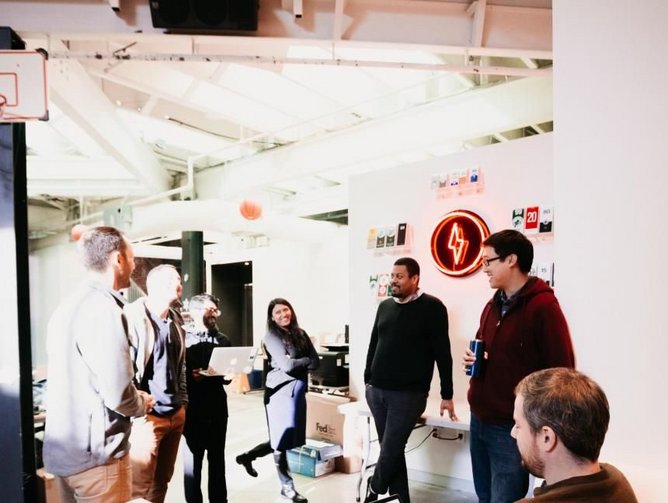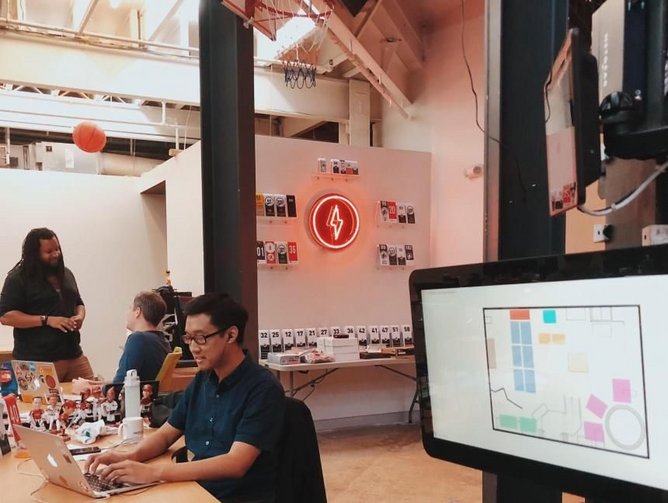Inside Radius Networks’ digital disruption of data through proximity
In an increasingly data driven world, businesses are identifying ways to unlock new opportunities and markets as they turn to data to reach their digitally enabled customer bases. US-based Radius Networks works with major brands to capture and utilize proximity-based data in order to reach the right people at the right time.
As businesses continue to seek new and more innovative ways to use data, Radius Networks Customer Location Platform, which includes tableside and curbside service, asset tracking, and proximity cloud analytics, fits right at home in the current business landscape. However, as co-founder and CEO Marc Wallace explains, bringing disruptive technologies to market is no small feat. “The real challenge that we faced was from an R&D perspective. We were building a very new technology concept, leveraging Bluetooth or wireless on mobile devices and this was a very novel thing,” he explains. “Nobody really knows how to use it or how to implement it and that caused teething problems.”
Having co-founded the business with partners from previous, successful ventures in 2011, Wallace has spent the best part of his career in the technology and internet space. It was through this experience that the team saw an opportunity in using wireless signals as a means of engaging people on their smartphones. “You would walk into a venue and your phone picks up a Wi-Fi signal and we saw that you could use that as an opportunity to engage and say ‘welcome’ or ‘go here’,” he explains. “That’s why we built Radius Networks. It was all formed around that initial concept of engaging with people based on their location and proximity to certain points of interest. That was the beginning of Radius Networks.”
Over the last seven years, Radius Networks has worked with major brands across the US and is active in more than 60 countries worldwide, with more than 27 patented technology solutions within its portfolio. The company’s success is clear to see, but Wallace notes that the key to that success lies in the people involved, as well as a smart approach to capital investment. “Once we knew what we were doing we developed strong expertise in the area,” he says, “but it took a number of years to really get to a productization that our customers, huge brands, could see true value in and a return of investment (ROI).”
“The first four years of the company were really defined by R&D, but over the last few years we’ve moved into the operationalization phase. We are taking a product that is maturing and pushing it worldwide, so we have to be able to scale it and have third parties and partners that can sell and install the product.”
With a career defined by technology it would be easy for Wallace and his team to assume that partners, suppliers and potential customers will have the same understanding and knowledge of innovative technologies, but as Wallace noted previously, proximity solutions are a very novel concept. The key to working with stakeholders and obtaining their ‘buy-in’ is communication and Wallace recognises this. Radius Networks has cemented itself within the market for a number of years and can begin to point to successes and tangible value that its solutions have brought for customers. “Real dollars,” says Wallace. “We have real dollars that our technology can enable through efficiencies, savings and of course drawing customers to their stores. We also have very solid data that can back up and highlight the ROI that we can bring.”
Sales figures, through Quick Service Restaurants (QSRs) or instore delivery, are the key metrics that can speak to the impact of Radius Networks but there are also the less tangible metrics such as customer satisfaction that can really be the difference. Wallace can point to customer satisfaction increases of close to 25% over stores that do not use Radius Networks’ solutions from convenience alone and that he feels is in itself “real ROI”.
Another key metric that Radius Networks has been able to store is wastage. Through its ability to pinpoint customers and drive them through a sales process, the company is able to help businesses manage the process entirely. “Let’s look at food ordering, whether its instore or delivery,” says Wallace. “We're able to help a business manage the process, drastically cutting waste and wrong orders in half. People are getting the right order. They're getting their food, not somebody else's food, and they're getting it in a timely fashion so that their food doesn't need to be thrown away. It's very important, and a big ROI factor for a lot of those businesses.”
Radius Networks is defined by data as much as it is defined by technology, and so the company collates and stores mountains of data. This inevitably raises the question of what Radius Networks is doing with sensitive data. Wallace says that the company saw a fork in the road a number of years ago in the collection of location specific data. “It can be very personalized and so we decided very early on not to aggregate personal data and sell it to third parties that were not related to our clients,” he says. “We work directly with the brands, and we will provide data back to those brands almost on a pass-through basis – rather than storing data long term on our systems that are related to their customers.
“We will honor their relationship directly with their customers. When end customers are using our solution through one of our clients, they can be assured that whatever agreement they have in place from a privacy standpoint – we honor that. That is all part of the GDPR system, so we follow that standard. That's how we operate and we don't plan on changing that.”
Working with clients in more than 60 countries, Wallace recognizes the importance of a trusting client relationship and being able to provide tailored solutions that fit different countries and different market dynamics and demands. To this end, Radius Networks has dedicated teams assigned to its biggest brand partners that work directly with them and are “embedded on site”. “It’s all about dedicating resources to that client and allowing them to focus directly on what their customer needs,” he explains.
In this regard, the way in which Radius Networks goes above and beyond to provide additional services and give value to the client proves crucial. Despite its product offering, Radius Networks is not a ‘call us if you need us’ hardware company; it differentiates itself in the way it provides its solutions as a service. The company will install a solution, provide further solutions and then provide a service of services on that solution ranging from maintenance, monitoring analytics and feedback. “It's similar to if you're getting cable at your house,” says Wallace. “You get a set-top box. It's hardware, but you're paying a monthly subscription for the service that will be maintained and updated. That translates to real-time data that we obtain from the field that allows us to understand how the system is being used and then be able to optimize other processes around that.”
As the market leader in an ever-evolving technology landscape, Radius Networks must ensure that its offering continues to be at the very forefront of the latest technology trends. Wallace says that the company’s technology and ability to implement solutions must always be years ahead of its customers. When working with some of the bigger clients in the market, whose ability to take solutions to market is measured in years, Radius Networks has to continuously bring innovation to the table in order to succeed. “We'll work with them and say, ‘Okay, here's what's next, here's what's three years down the road or five years down the road’, and bringing it to them so that they can get it into the pipeline early and start to mature the product, because it will take years to get that out,” he says.
“We like being the center of expertise that our customers can turn to in order to give them an idea where the wind's blowing on the technology.”
Despite considerable success over the last seven years, Radius Networks hasn’t been able to achieve this growth alone and Wallace can point to key strategic partners that the company has worked with that have been fundamental in allowing the company to achieve. Radius Networks has called upon the support of NCR, Diebold Nixdorf, Coates Group and Fujitsu to assist with service support and delivery. “We install thousands, almost tens of thousands of locations a year, so in order to do that across the world, we need partnerships to do that,” says Wallace.
Technology partners have also been instrumental in enabling the rapid development and deployment of the products, such as AOPEN and EM Micro. “They have been key, not only to provide the right solution but helping us to evolve the solution.”
The industries of today will not be the same as the industries of tomorrow and technology will continue to steer that evolution. Radius Networks must be ready for whatever tomorrow will bring for its clients. Wallace believes that the hospitality market will become key in the near future for the company and that Radius Network’s approach to service, as well as its experienced team, is what will be fundamental in order to remain as the market leader.
“If we need to react to the increasingly varying customer demands or requirements, we have the ability to quickly and nimbly do that,” he says. “We control the entire stack of our solution and we have incredible experience in this space. That's a huge advantage that we have over anybody else that is either in the market or trying to get into the market.”

